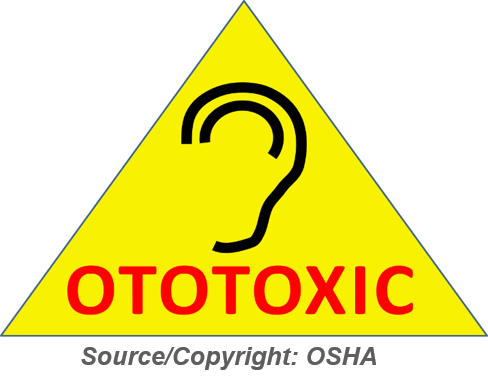Attention A T users. To access the menus on this page please perform the following steps.
1. Please switch auto forms mode to off.
2. Hit enter to expand a main menu option (Health, Benefits, etc).
3. To enter and activate the submenu links, hit the down arrow.
You will now be able to tab or arrow up or down through the submenu options to access/activate the submenu links.
Locator
Contact
Search
VA »
Health Care »
National Center for Rehabilitative Auditory Research (NCRAR)
»
»
International Ototoxicity Management Group (IOMG)
National Center for Rehabilitative Auditory Research (NCRAR)
International Ototoxicity Management Group (IOMG)
 Who are we?
Who are we?We are a global consortium of international stakeholders from universities, task forces, health foundations, professional societies, government agencies and patients created to address healthcare gaps in the clinical management of ototoxicity (hearing loss, tinnitus, and/or balance deficits) caused by medical, occupational or environmental exposures to ototoxicants.
What is the structure of the group? For information on current IOMG leadership,click here.
The Coordinating Chair helps identify and align initiatives across focus areas, each managed by its own Chair or Co-Chairs
IOMG currently has four focus areas targeting: (i) ototoxicity of cancer treatment (chemo/radiation therapy), (ii) aminoglycoside-induced ototoxicity (in patients with bacterial infections), (iii) environmental and occupational ototoxicants, and (iv) international considerations.
A network of formal representatives from external clinical organizations, governmental agencies and patient groups liaise with IOMG to ensure our guidance is contextually relevant and valuable.
Our mission
The IOMG will enhance the social participation and quality of life of millions of individuals worldwide by partnering with patients, healthcare providers and external organizations to address gaps in ototoxicity management thereby giving patients and workers greater control over their long-term auditory and vestibular health.
What is ototoxicity management?
Hearing and vestibular healthcare management centered on individuals at risk for experiencing hearing loss, tinnitus, or balance problems from exposures to ototoxicants
Includes the identification of at-risk patients, and the diagnosis, routine monitoring, rehabilitation and therapeutic management of hearing and balance deficits in affected individuals
What is effective ototoxicity management?
Ensures that audiology care pathways coordinate with the occupational or medical specialty systems that generate the ototoxic exposure to optimize opportunities for informed consent, early detection, and timely rehabilitation and/or treatment of ototoxicity
Places the at-risk individual in charge of their own ototoxicity management plan, adapted to their specific needs, priorities, and values (patient centered)
Why is a global effort needed?
Despite the well-established physical, socio-economic, and psychological consequences of hearing and balance dysfunction, clinical practice in these situations is not consistent within or across countries:
- Few healthcare delivery models integrate ototoxicity management into the essential and/or life-preserving care pathways that utilize therapies that unavoidably increase the risk of ototoxicity
- There are no standard methods for the auditory surveillance of individuals exposed to hazardous chemicals at work
A global effort is needed to achieve a global standard of ototoxicity management. A multicultural and interdisciplinary approach is needed to support its application to specific contexts and care pathways development of tools for implementation and health promotion within specific contexts.
Long-term goals
Develop a comprehensive set of clinical guidelines, position statements, and tool kits for implementation and health promotion of ototoxicity management that will address current healthcare gaps in relation to best practices
Disseminate ototoxicity management materials and toolkits in traditional and non-traditional formats to accommodate specific work environments, healthcare structures, healthcare workers, and patients across the globe
IOMG productivity to date
IOMG productivity has included development of expert consensus opinions on gaps in ototoxicity management, publications and conference presentations on clinical perspectives and resources related to the implementation of ototoxicity management, as well as improved stakeholder engagement, including pathways for outreach, networking events and community engagement.
The IOMG has also dedicated efforts and produced deliverables for the identification of research needed to progress clinical management in this area and is making the results of these efforts available for researchers, funders, external organizations and other stakeholders.
Near-term objectives are to:
Establish consensus opinion on best practices for widespread implementation of ototoxicity management in key contexts that represent a range of:
- Global regions
- Regional economies (emerging, transitional, strong)
- Healthcare structures (community-based, government, third party payer),
- Exposure environments (e.g., medical oncology, pulmonology, otology, audiology, cystic fibrosis and infectious disease clinics)
- Patient health beliefs
Click here to access the IOMG Aims.



















